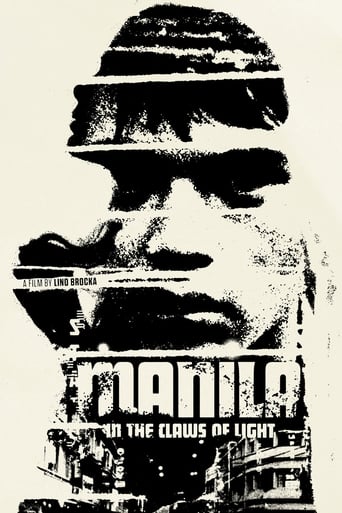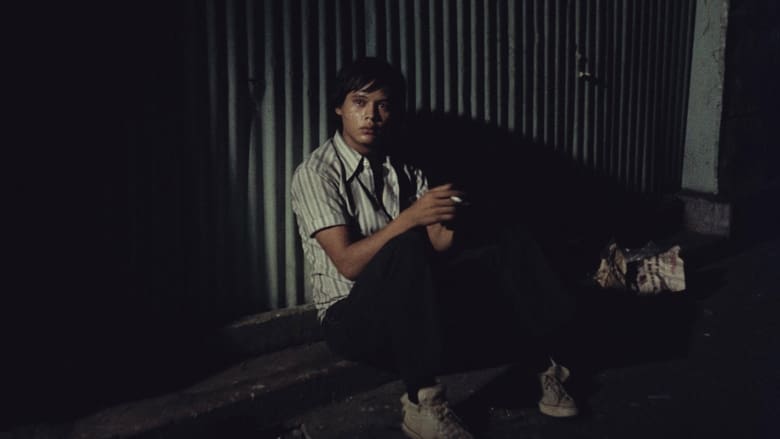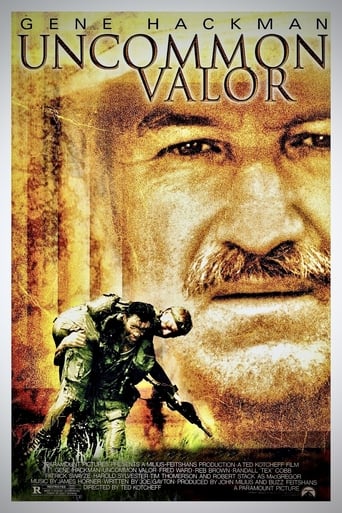

Manila in the Claws of Light (1975)
Julio, a young fisherman from a provincial village, descends into social alienation as he arrives in Manila to search for his loved one.
Watch Trailer
Cast


Similar titles
Reviews
Really Surprised!
Instead, you get a movie that's enjoyable enough, but leaves you feeling like it could have been much, much more.
The plot isn't so bad, but the pace of storytelling is too slow which makes people bored. Certain moments are so obvious and unnecessary for the main plot. I would've fast-forwarded those moments if it was an online streaming. The ending looks like implying a sequel, not sure if this movie will get one
.Like the great film, it's made with a great deal of visible affection both in front of and behind the camera.
As always with a film like Manila in thr Claws of Light, context counts above all. This is a story that has a setting in the Phillipenes of poverty and a crushing sense of 'got to get by on the skin of my teeth', not to mention the exploitation of... Everyone, whether it be through work by day, by night, human and sex trafficking, the works (only drugs seem to be absent here, but im sure where were on the margins if not out in the open). The sense of repression in this society makes Italian neo-realist cinema seen quaint, and that is a strength of Brocka's film because he is putting up a lens through how he sees it: this is horrible, this is punishing, and the only thing that can be a light is if people care about one another. Though the thrust of the story is if Julio will find his beloved Ligaya in Manila, we dont get to that resolution until two thirds of the way into the film. Primarily this is about how someone who is an outsider to the city as Julio is from a seaside village (though still very much of the culture and time and place), and so we are also those outsiders. This is not meant to be a subtle trip - the horrible boss of the construction workers, being paid 2.50 a day but on paper it's 4, often is munching on a cigar and has the boss ethic of any given sweatshop in history - but thats not really a detriment. We believe this setting because we believe the people. I assume most of these players are not professionals, and they do well under Brocak's direction and tight budget. So when Julio is out in the streets, or outside the building where hes mostly certain Ligaya is being stowed away, it doesn't feel like we are seeing something so set apart from a reality we can see. On the contrary, this is poverty and thr decimation of working class people everywhere. Though criticism of the Marcos regime is not explicitly stated, it doesnt have to be. It's implicit in how so many of the people Julio comes across are mistreated (and of course some corrupt cops here and there who make no bones about stealing money and walking away help along the struggles), and of course for the women exploitation in the world of prostitution is exploitation of workers (just happens to be sex). Julio is as close as we can get to a moral compass - while his coworkers go one by one with a Booker he refuses, despite the pressure from the pump, for example - and his visions of the past are what he clings to. He doesnt see any life for himself without her, which makes for a good goal for the story, but is also his weakness - he loves this woman so much that nothing else can change for himself. If I had a nit to pick some of the flashbacks, while effective when done in sorr of subliminal ways, become frequent to the point of repetition because what else would there be to put in this cut or scene (or it may be the flashbacks themselves don't vary, it's just the same image of Ligaya in the beach). And yet my one criticism is addressed in a way by the time the movie gets to her and the two are reunited. So many scenes, in scene after scene, almost it feels like a pattern deliberately where the idea is, "THIS is what is happening to this overworked/underpaid/tragic person being exploited by the ruling classes," and while it could easily dip into propaganda I dont see this as some negative in that Brocka's passion and intensity as a filmmaker, the commitment to realism, takes away a feeling of "this is an *agenda* as it"s about these people who exist. But all these scenes are really leading up to Ligaya, who was exploitated just about the worst of all - in one long take that seems to last for about seven or eight minutes, she tells her story to Julio in a bedroom, and it's wise to not cut away. We are here listening to her story, and unlike at other points there is no cutting away; we have to picture this for ourselves.This is a sad and depressing story, but I didnt feel like it is a giant let down to watch because of the anthropological nature of how it's presented and how the melodrama escalates so believably. As Scorsese says in the intro on the criterion disc, this is a movie made for the people.
Lino Brocka's 1975 film The Nail of Brightness (aka Manila in the Claws of Neon) is first and foremost a showcase for the social ills of the Philippines, particularly in the urban center of Manila. The film's main character Julio is only recently arrived to the city having left behind his impoverished but relatively dignified and happy life as a fisherman in a small village to find his girlfriend Ligaya who had herself gone to the city at the promise of a job and some educational opportunities only to disappear completely a short time later. Julio's episodic experiences in the city give Brocka a chance to exhibit all sorts of social issues as Julio is robbed of his savings before the film even begins and is forced to seek employment at an unsafe construction site where he agrees to work for a low wage and fails to even receive the meager pay he bargained for; the construction company can get away with this because of a lazy, inefficient government that apparently does nothing for its working class people. As the film continues Julio's misery grows greater; more than one character is forced to turn to prostitution to make ends meet and several major characters are the victims of violent crime.In spite of the didactic nature of the material, Brocka's film is a success because he builds sympathy for Julio through the use of subjective camera techniques. The narrative is peppered with brief, precisely edited flashback shots from Julio's point of view: the result is an unusually powerful evocation of memory. Brocka's subjective cinema transcends the established techniques of social realism and allows him create one of the greatest doomed characters in film history.
I'm not a fan of our local films here in the Philippines. I've seen so many cheesy Filipino films such as "Dyesebel", "Batang X" etc. But after I have seen "Maynila", everything changed.The film is simply amazing. It really blows me away. This is very original concept of story I have seen in my entire life. Although some moments are like "Midnight Cowboy" inspired, the whole story is very original.The characters are very memorable, though some acting needs some improvement. Thanks to the late Director, Lino Brocka for making this unforgettable, total human experience. Brocka is the greatest Filipino director, and I'm sure everyone will agree on me.10/10
In all the long, hit-and-miss years of Philippine cinema, no other movie made an impact as much as "Maynila". This movie is proof that low-budgeted movies can truly be maximized by a beautiful, thought-provoking story. `Maynila' is the tragic story of Julio (Bembol Roco), a small-town fisherman who went to the big city to search for Ligaya, his sweetheart (Hilda Koronel), losing his innocence and humanity in the process.The acting was not superb, but the plot and storyline carried the cast all the way, making each character as memorable as the next. Julio's journey through the streets of Manila is real. The direction was extraordinary. The climax and ending of the story is as surprising as 'Fight Club' and 'Seven', but will leave you thinking and utterly breathless, applause in seat. Never has a tragedy been as beautiful as this.Also, never will the Philippines experience a movie as beautiful as this. Never again.








